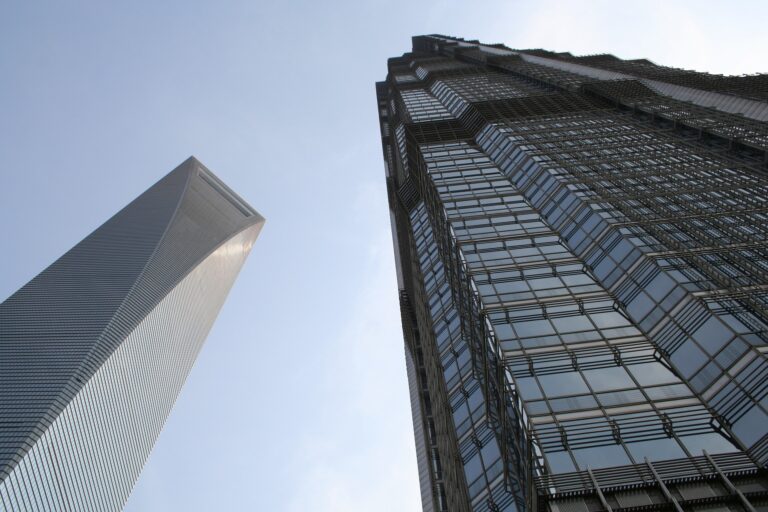Indonesia is a country with a rapidly growing economy and a significant presence in the technology sector. The country’s tech industry has grown significantly in recent years, driven by factors such as a young population, increasing internet penetration, and a supportive government policy.
In this article, we will explore the most important areas of the technology sector in Indonesia, the technological systems that are currently in place, and some interesting statistics.
Mobile technology:
One of the most significant areas of the technology sector in Indonesia is mobile technology.
With a population of over 270 million people, Indonesia is the fourth-largest country in the world by population. Of these, over 160 million people are active mobile internet users, making Indonesia the fifth-largest mobile market globally.
The Indonesian government has taken steps to encourage the growth of the mobile technology sector. In 2018, the government launched the Making Indonesia 4.0 roadmap, which aims to encourage the development of Industry 4.0 technologies such as the Internet of Things (IoT), big data, and artificial intelligence (AI).
As part of this initiative, the government has pledged to invest IDR 40 trillion (USD 2.7 billion) in the country’s digital infrastructure over the next five years.
E-commerce:
E-commerce is another important area of the technology sector in Indonesia.
The country has a rapidly growing e-commerce market, driven by factors such as increasing internet penetration and a young population. According to a report by Google, Temasek, and Bain & Company, Indonesia’s e-commerce market is expected to be worth USD 53 billion by 2025, up from USD 12 billion in 2019.
Some of the key players in the Indonesian e-commerce market include Tokopedia, Bukalapak, Shopee, and Lazada. These companies offer a range of products, from electronics to fashion and food. Many e-commerce companies in Indonesia also offer payment and logistics services, which have helped to spur the growth of the industry.
Financial technology (fintech):
Fintech is another rapidly growing area of the technology sector in Indonesia. The country has a large unbanked population, with over 90 million people lacking access to traditional banking services. Fintech companies are filling this gap by offering a range of digital financial services, including mobile payments, lending, and insurance.
According to a report by the Indonesian Fintech Association, the country’s fintech industry grew by 23% in 2020, with a total transaction value of USD 56.8 billion. The report also found that digital payments were the most popular fintech service, with a transaction value of USD 54.2 billion.
Some of the key players in the Indonesian fintech industry include GoPay, OVO, Dana, and LinkAja. These companies offer a range of financial services, from mobile payments to micro-lending and insurance.
Internet of Things (IoT):
The Internet of Things (IoT) is another important area of the technology sector in Indonesia. The country has a large population and a rapidly growing economy, which are driving the demand for IoT solutions. IoT technology is being used in a range of industries, including agriculture, manufacturing, and transportation.
According to a report by the Indonesian IoT Association, the country’s IoT market was worth IDR 7.2 trillion (USD 490 million) in 2019. The report also found that the IoT market is expected to grow at a CAGR of 25% between 2019 and 2023.
Some of the key players in the Indonesian IoT market include Telkom Indonesia, PT. Sigma Cipta Caraka, and PT. Multipolar Technology. These companies offer a range of IoT solutions, from smart home devices to industrial automation systems.
Artificial Intelligence (AI):
Artificial intelligence (AI) is another emerging area of the technology sector in Indonesia. The country has a young and highly educated population, which is driving the demand for AI solutions. AI technology is being used in a range of industries, including healthcare, finance, and transportation.
According to a report by the Indonesian Association of Artificial Intelligence (INAI), the country’s AI market is expected to be worth IDR 22 trillion (USD 1.5 billion) by 2023. The report also found that the government has taken steps to encourage the growth of the AI industry, including the launch of the National Strategy on Artificial Intelligence.
Some of the key players in the Indonesian AI market include PT. Astra International Tbk, Gojek, and Traveloka. These companies offer a range of AI solutions, from chatbots to fraud detection systems.
Cybersecurity:
Cybersecurity is an increasingly important area of the technology sector in Indonesia. With the growth of the digital economy, there is a growing need for cybersecurity solutions to protect against cyber threats.
According to a report by the Indonesian Cybersecurity Association, the country’s cybersecurity market was worth IDR 2.2 trillion (USD 150 million) in 2018.
The Indonesian government has taken steps to improve cybersecurity in the country, including the launch of the National Cyber Agency (BSSN) in 2017.
The BSSN is responsible for coordinating and implementing cybersecurity policies and strategies in Indonesia.
Some of the key players in the Indonesian cybersecurity market include PT. Telkom Indonesia Tbk, PT. Multipolar Technology Tbk, and PT. Securemetric Technology. These companies offer a range of cybersecurity solutions, from network security to data protection.
Interesting statistics:
• According to a report by the Indonesian Internet Service Providers Association (APJII), there were 196.7 million internet users in Indonesia as of January 2021, up from 171.2 million in 2019.
• The same report found that the average internet speed in Indonesia was 15.7 Mbps in 2021, up from 7.7 Mbps in 2017.
• According to a report by the Indonesian Fintech Association, the country’s digital payments market grew by 76% in 2020, with a total transaction value of USD 39.9 billion.
• A report by the Indonesian Agency for Creative Economy (Bekraf) found that the country’s creative economy was worth IDR 1,238 trillion (USD 84 billion) in 2019, up from IDR 1,065 trillion (USD 72 billion) in 2017.
• According to a report by the Indonesian Association of Artificial Intelligence (INAI), the country’s AI talent pool was estimated to be around 11,000 people in 2020.



